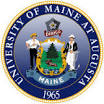What do they do?
Assist librarians by helping readers in the use of library catalogs, databases, and indexes to locate books and other materials; and by answering questions that require only brief consultation of standard reference. Compile records; sort and shelve books or other media; remove or repair damaged books or other media; register patrons; and check materials in and out of the circulation process. Replace materials in shelving area (stacks) or files. Includes bookmobile drivers who assist with providing services in mobile libraries.
Also known as:
Bookmobile Driver, Cataloging Library Technical Assistant (Cataloging LTA), Circulation Clerk, Library Aide, Library Assistant, Library Associate, Library Clerk, Library Media Technician, Library Specialist, Library Technical Assistant (LTA), Library Technician, Media Specialist, Page Technician
-
-6%
Change
Ranks #58 in job growth rate470Job Openings
Ranks #7 in net job growth
-
Spokane Falls Community College
Spokane, WA
-
Central Carolina Community College
Sanford, NC
-
University of Maine at Augusta
Augusta, ME
-
City College of San Francisco
San Francisco, CA
-
Cuesta College
San Luis Obispo, CA
Looking for colleges that offer a specific major? Use the College Match Tool to find your best-matched schools and discover your estimated Net Price!
- Doctorate or Professional Degree (1%)
- Master's degree (11%)
- Bachelor's degree (29%)
- Associate's degree (7%)
- Some college, no degree (20%)
- High school diploma equivalent (29%)
- Less than high school diploma (3%)
People in this career often know a lot about:
- Customer and Personal Service - Knowledge of principles and processes for providing customer and personal services. This includes customer needs assessment, meeting quality standards for services, and evaluation of customer satisfaction.
- English Language - Knowledge of the structure and content of the English language including the meaning and spelling of words, rules of composition, and grammar.
- Administrative - Knowledge of administrative and office procedures and systems such as word processing, managing files and records, stenography and transcription, designing forms, and workplace terminology.
People in this career often do these activities:
- Process library materials.
- Provide information to the general public.
- Help patrons use library or archival resources.
- Classify materials according to standard systems.
- Maintain operational records.
- Distribute instructional or library materials.
- Assist other educational professionals with projects or research.
- Maintain computer equipment or software.
- Inspect materials or equipment to determine need for repair or replacement.
- Order instructional or library materials or equipment.
- Train staff members.
- Direct activities of subordinates.
- Search information sources to find specific data.
- Plan community programs or activities for the general public.
- Organize informational materials.
- Maintain inventories of materials, equipment, or products.
- Develop instructional materials.
- Write articles, books or other original materials in area of expertise.
- Develop library or archival databases.
- Sort mail.
- Deliver items.
- Confer with others to conduct or arrange operational activities.
- Operate audiovisual equipment.
- Compile specialized bibliographies or lists of materials.
This page includes data from:

 Occupation statistics: USDOL U.S. Bureau of Labor Statistics Occupational Employment Statistics
Occupation statistics: USDOL U.S. Bureau of Labor Statistics Occupational Employment Statistics





